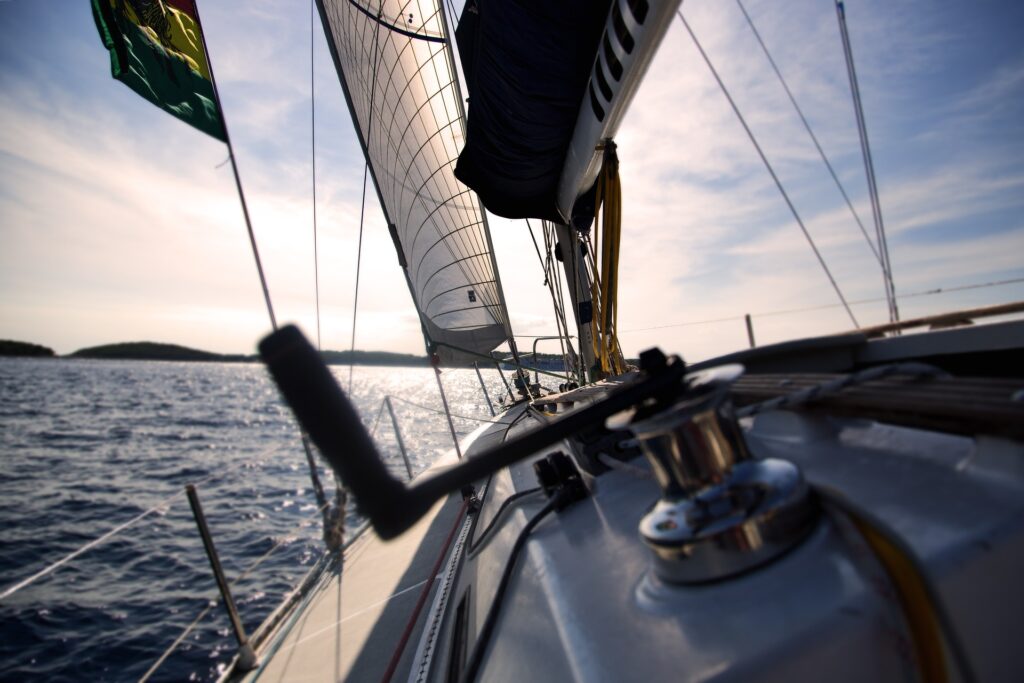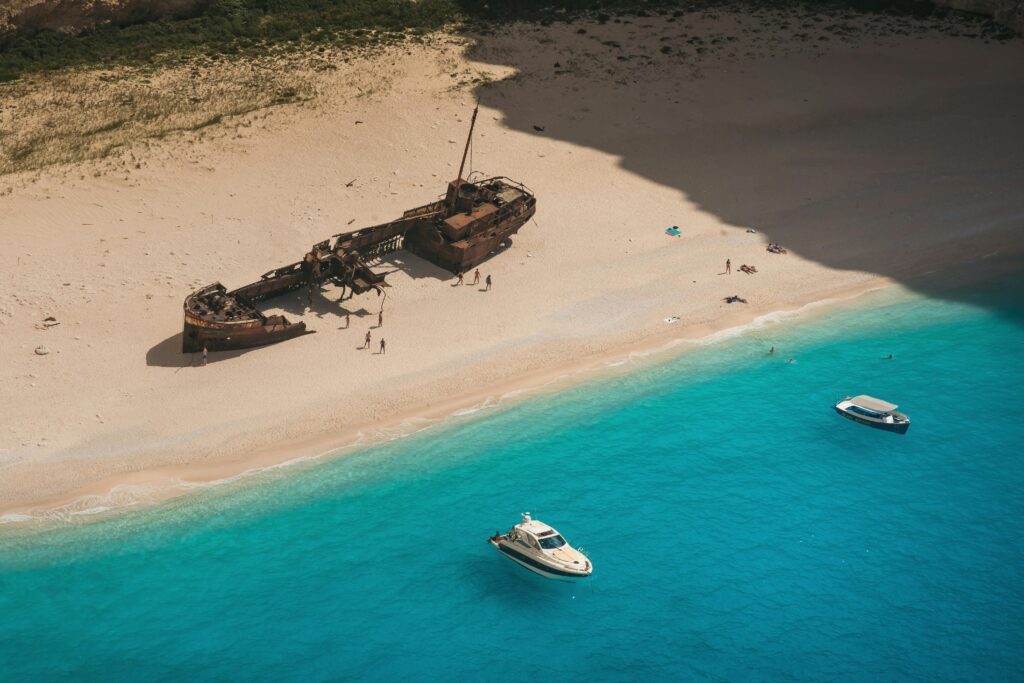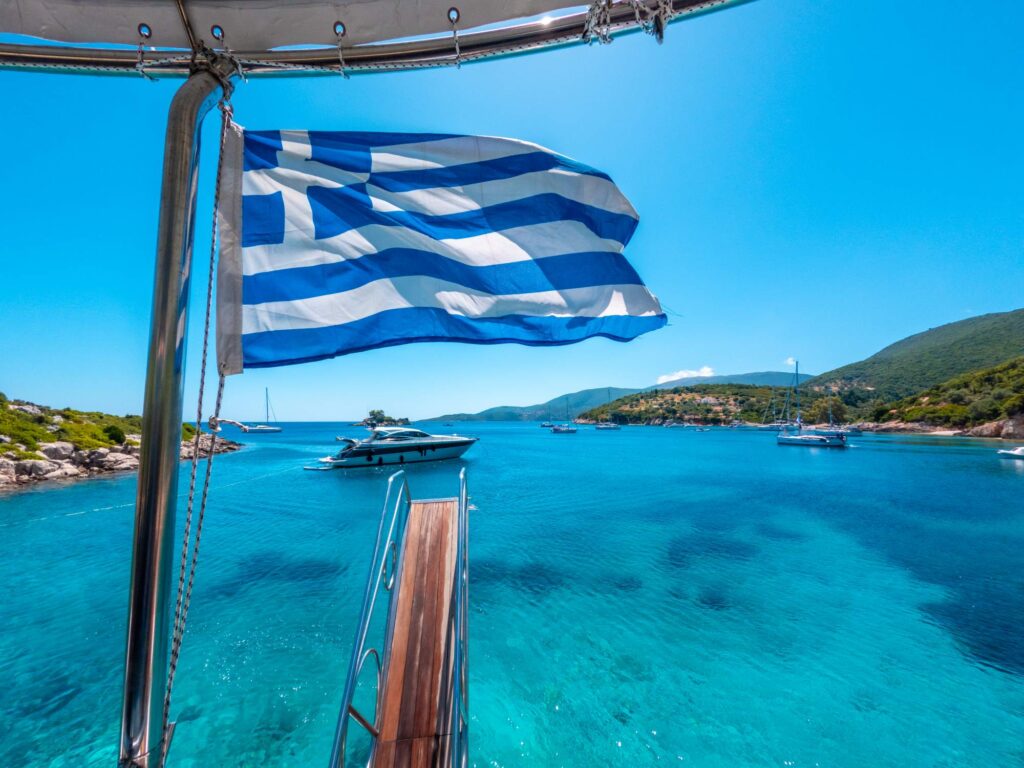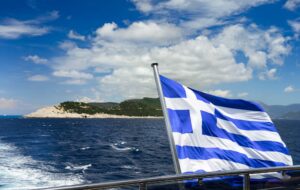Greece, with its crystal-clear, turquoise waters and stunning beaches, stands out as a premier location for a sailing vacation. The Greek sovereign land includes 6,000 islands and islets, providing a diverse and enchanting sailing experience. From the Aegean Sea to the Ionian Sea, sailing around the Greek islands offers a mix of vibrant culture, historical sites, and picturesque villages. Whether you're navigating the calm waters of the Ionian Islands or the bustling routes of the Cyclades, sailing in Greece promises an adventure filled with beauty and exploration. The combination of nature, culture, and heritage makes Greece an ideal destination for both first-time visitors and experienced sailors.
Embarking on a sailing trip in Greece requires thorough preparation to ensure a safe and enjoyable experience. Understanding local maritime laws, having the appropriate safety equipment, and packing light yet efficiently are crucial steps. Additionally, being aware of weather conditions, such as the strong north winds in August, is vital for a smooth journey. Preparation allows sailors to fully immerse themselves in the experience, from exploring charming villages to enjoying the local cuisine. Proper planning not only enhances the enjoyment of the trip but also ensures safety and compliance with regulations.
In this blog post, we will provide you with essential tips for sailing in Greece, ensuring you make the most of your adventure. We'll cover the best time to sail the Greek islands, planning your sailing route, and understanding local maritime laws. You'll also learn about packing essentials, navigating Greek waters, and engaging with the vibrant local culture. Whether you're a novice or an experienced sailor, these tips will help you prepare for an unforgettable sailing trip in Greece. Get ready to set sail and discover the magic of the Greek islands with confidence and ease.
Takeaways
- Optimal Sailing Time: The best months for sailing in Greece are April to October, with considerations for weather patterns like the Meltemi winds.
- Route Planning: Popular sailing routes include the Ionian Sea, Aegean Sea, Cyclades, and Dodecanese, with hidden gems for a quieter experience.
- Safety and Navigation: Essential safety tips include understanding local maritime laws, having proper safety equipment, and using technology like GPS and navigation apps.
- Local Engagement: Engage with locals for cultural insights, attend local events like “panigiri,” and enjoy Greek cuisine in moderation.
- Budgeting: Plan for costs such as boat rental, mooring fees, and provisions, and consider options for saving money by traveling in shoulder seasons and using recommended services.
Choosing the Right Time to Sail
Selecting the optimal time for your sailing trip in Greece is crucial to ensure a memorable and enjoyable experience. By understanding the weather patterns, tourist season dynamics, and unique climatic conditions like the Meltemi winds, you can plan your adventure around the Greek islands with confidence and ease.

Best Months for Sailing the Greek Islands (Weather, Tourist Season)
The best months for sailing the Greek islands typically span from April to October. During this period, the weather conditions are ideal for sailing, with warm temperatures, clear skies, and calm seas. The summer months, particularly June, July, and August, are the most popular times for a sailing trip in Greece due to the hot weather and vibrant atmosphere. However, these months also coincide with the peak tourist season, meaning the islands and marinas can be quite crowded. For a more relaxed and quieter experience, consider sailing the Greek islands during the shoulder months of April, May, September, or October. During these times, you can enjoy pleasant weather and fewer tourists, making it easier to explore the stunning beaches and picturesque villages.
Considerations for Peak vs. Off-Peak Seasons
Choosing between peak and off-peak seasons depends on your preferences and what you want to get out of your sailing vacation in Greece. The peak season, running from June to August, offers bustling ports, lively nightlife, and a plethora of activities and events. It's the best time to sail Greek islands if you enjoy socializing and don't mind the crowds. However, accommodation and yacht charter prices are at their highest, and popular destinations can be overcrowded.
On the other hand, the off-peak seasons of April, May, September, and October provide a more serene and enjoyable experience. The weather is still warm, but the temperatures are more moderate, making it comfortable for sailing trips. The marinas and tourist spots are less crowded, giving you a chance to explore the local culture and heritage at your own pace. Additionally, you can often find better deals on yacht charters and accommodations, making it a cost-effective time to sail around the Greek islands.
Weather Patterns to Be Aware Of (Meltemi Winds)
One of the critical weather patterns to be aware of when planning your sailing trip in Greece is the Meltemi winds. These strong north winds are prevalent in the Aegean Sea, particularly during the summer months of July and August. The Meltemi winds can pose a challenge for sailors, especially those who are inexperienced. While they can provide a refreshing breeze and ideal conditions for experienced sailors, they can also create rough seas and make navigation more difficult.
If you're planning to sail the Greek islands during the Meltemi season, it's essential to be prepared and take necessary safety measures. Check the weather forecast regularly and plan your route accordingly to avoid the strongest winds. Hiring a qualified skipper or crew can also be beneficial, as they have local knowledge and experience dealing with these weather conditions. If you prefer calmer sailing conditions, consider planning your trip outside the peak Meltemi season, in the shoulder months of April, May, September, or October.
Set Your Sails!
Ready to set sail on an unforgettable adventure? Discover affordable yacht charters and start planning your dream getaway today!
Planning Your Route
Popular Sailing Routes and Destinations (Ionian Sea, Aegean Sea, Cyclades, Dodecanese)
When planning your sailing trip in Greece, the Ionian Sea, Aegean Sea, Cyclades, and Dodecanese are among the most popular sailing destinations. The Ionian Islands, known for their calm waters and lush landscapes, are ideal for a relaxed sailing experience. The Aegean Sea, particularly the Cyclades, offers picturesque islands with charming villages and vibrant nightlife. The Dodecanese islands, including Rhodes and Kos, are rich in history and perfect for exploring ancient ruins and beautiful beaches.
Must-Visit Islands and Hidden Gems
For those looking to sail around Greek islands and avoid the crowds, consider off-the-beaten-path destinations like Pylos, Methoni, and Monemvasia in the Peloponnese, which offer serene anchorages and historical sites. In the Cyclades, islands like Serifos and Kimolos provide stunning scenery and quieter anchorages. The Dodecanese islands such as Patmos, Lipsi, and Kalymnos offer a blend of natural beauty and cultural heritage.
Planning your sailing route in Greece can be simplified with the right tools and resources. Websites and apps like Navionics and OpenSeaMap provide detailed charts and navigation information. Additionally, local sailing clubs and forums can offer valuable insights and updates on weather conditions, marinas, and anchorages. Utilizing these resources will help you chart a safe and enjoyable course through the beautiful Greek waters.
By considering these popular routes and hidden gems, you can create a personalized and unforgettable sailing experience in Greece.
Understanding Local Maritime Laws and Regulations

Familiarizing yourself with local maritime laws and regulations is essential to ensure a safe and compliant sailing trip in Greece. Knowing the required permits, necessary documentation, and key maritime rules will help you navigate Greek waters with confidence. By staying informed through reliable resources, you can avoid potential fines and ensure a smooth sailing experience.
Necessary Permits and Documentation
Before setting sail around the Greek islands, it's crucial to have the necessary permits and documentation in order. If you're chartering a yacht, ensure that the boat's registration papers, insurance documents, and any required licenses are up to date. For those sailing the Greek waters with their own vessels, obtaining a cruising log from the Port Authority is mandatory. Additionally, non-EU flagged boats may require a Transit Log, which is valid for six months and must be renewed if the stay extends beyond that period.
Key Maritime Rules to Follow
Understanding and adhering to local maritime rules is essential for a smooth sailing trip in Greece. Greek maritime laws require all boats to carry specific safety equipment, including life jackets, fire extinguishers, and flares. It's also important to be aware of no-anchor zones and marine protected areas to avoid fines. Navigation within Greek waters often involves passing through narrow channels and busy harbors, so maintaining a proper lookout and adhering to right-of-way rules is crucial. Additionally, respecting speed limits near ports and marinas helps ensure safety for all.
Resources for Staying Updated on Regulations
To stay informed about the latest maritime laws and regulations, several resources are available. The Greek Ministry of Shipping and Island Policy provides official updates and guidelines. Websites like the Hellenic Coast Guard and various local sailing clubs offer valuable information and alerts on navigational warnings and weather conditions. Utilizing apps such as Navionics can also keep you updated on local rules and changes in maritime traffic. Regularly consulting these resources will help ensure compliance and enhance the safety of your sailing experience in Greece.
What to Pack for a Sailing Trip in Greece
Packing efficiently for a sailing trip in Greece is crucial to ensure you have everything you need without overloading your boat. Lightweight, breathable clothing suitable for warm weather is essential, including swimsuits, T-shirts, shorts, and a hat for sun protection. Don’t forget sunglasses and plenty of sunscreen to protect yourself from the intense Mediterranean sun. Comfortable deck shoes and flip-flops are also advisable.

Tips for Packing Light and Efficiently
When packing for a sailing trip in Greece, consider the limited storage space on a boat. Opt for quick-dry, multi-purpose clothing that can be layered. Use soft-sided bags that can be easily stowed away and pack only the essentials to avoid clutter. Roll your clothes to save space and use packing cubes for better organization. Additionally, pack a small amount of detergent to wash clothes as needed, reducing the amount you need to bring.
Important Items Not to Forget
Should your sailing yacht not have it, ensure you have all the necessary navigation tools, including maps, a GPS device, and nautical charts of the Greek islands. Safety gear is paramount, so bring life jackets, a first aid kit, and emergency flares. Other important items include a flashlight, multi-tool, waterproof bags for electronics, and any medications you may need. Additionally, pack enough provisions and water for your trip, as well as a cooler to keep perishables fresh. Personal items like toiletries, a lightweight towel, and a reusable water bottle are also essential. Don’t forget a lightweight jacket for cooler evenings or unexpected rain showers.
Most yachts would come with safety gear, however it's essential to ask the charter company what comes with the yacht so you're not hung out to dry.
By packing smartly and efficiently, you can ensure a comfortable and enjoyable sailing experience in Greece.
Tips for Safe Navigation
When sailing the Greek islands, navigating Greek waters safely is paramount. Here are some essential tips for safe navigation to help you on your sailing trip in Greece. Understanding local charts and maps is crucial, as these provide detailed information about water depths, hazards, and anchorages, ensuring you sail around Greek islands with confidence.
Using technology to aid in navigation can enhance your sailing experience. GPS devices and apps like Navionics offer real-time data and detailed maps of the Greek islands, making your journey smoother. Always check the weather forecast before sailing, especially for strong north winds like the Meltemi in the Aegean Sea, to ensure safe and enjoyable navigation.
For an enjoyable experience, always follow key maritime rules and maintain a proper lookout. Adhering to speed limits near ports and marinas is crucial. By blending traditional navigation techniques with modern technology, you can navigate Greek waters safely and enjoy your sailing trip in Greece to the fullest.
Safety Tips

Weather Considerations and How to Handle Rough Seas
Weather conditions in the Greek islands can vary significantly, so it's essential to be prepared. Always check the weather forecast before sailing and be aware of potential strong winds, particularly the Meltemi winds in the Aegean Sea during the summer months. If you encounter rough seas, reduce your speed, and steer into the waves at a slight angle to minimize rocking. Experienced sailors recommend keeping an eye on the horizon to reduce seasickness and maintaining a well-organized deck to avoid accidents.
Important Safety Equipment to Have on Board
Having the right safety equipment on board is crucial for any sailing trip in Greece. Ensure your boat is equipped with life jackets for all passengers, a first aid kit, fire extinguishers, and emergency flares. Navigation tools such as a compass, maps, and a GPS device are essential. It's also wise to carry a multi-tool, waterproof bags for electronics, and sufficient food and water supplies. A VHF radio is important for communication, especially in emergency situations.
Emergency Protocols and Contact Information
Familiarize yourself with emergency protocols before setting sail. In case of an emergency, use your VHF radio to contact the Hellenic Coast Guard on channel 16. It's essential to know the location of the nearest port or marina where you can seek assistance. Keep a list of emergency contact numbers, including local maritime authorities and medical facilities. Ensure all passengers are briefed on safety procedures and the location of safety equipment on board. Practicing drills for situations like man-overboard and fire can also be life-saving.
Best Practices for Anchoring in Greek Waters
When anchoring in Greek waters, it is important to choose a sheltered spot away from strong winds and currents. Use a reliable anchor that is appropriate for the seabed type, whether it’s sand, mud, or rock. Pay attention to the depth and scope ratio, typically 5:1 or 7:1, to ensure your anchor holds well. Always double-check the anchor's hold by gently reversing the boat and monitoring for any dragging.
Popular Marinas and Anchorages
Greece offers numerous popular marinas and anchorages perfect for a sailing trip. In the Ionian Sea, Lefkas Marina and Gouvia Marina in Corfu are excellent choices. The Aegean Sea features the bustling Alimos Marina in Athens and the scenic Mandraki Marina in Rhodes. The Cyclades islands, including Mykonos and Santorini, have picturesque and well-equipped marinas. The Dodecanese islands, such as Kos and Patmos, also provide safe and beautiful anchorages for exploring the region.
Tips for Securing Your Boat
Securing your boat properly ensures safety and peace of mind while exploring the Greek islands. Use sturdy mooring lines and fenders to protect your boat from damage. Regularly check the lines for wear and tear, especially if you are moored for an extended period. In busier marinas, consider using a stern-to mooring technique to save space and increase stability. Always monitor the weather conditions and adjust your mooring setup accordingly to accommodate any changes.
Exploring Onshore

After spending time on the water, exploring the Greek islands onshore offers a chance to immerse yourself in the rich culture, history, and natural beauty of these stunning destinations. Each island has its unique charm, from ancient ruins and picturesque villages to vibrant nightlife and tranquil beaches. Whether you're interested in hiking, dining, or simply soaking up the local atmosphere, there's something for everyone to enjoy. Here are some recommended activities and attractions to make the most of your time onshore.
Recommended Activities and Attractions on Popular Islands
Exploring the Greek islands offers a wealth of activities and attractions. On Santorini, visit the iconic caldera and enjoy the sunset from Oia. Mykonos is famous for its vibrant nightlife and beautiful beaches, while Crete offers historical sites like the Palace of Knossos and stunning hiking trails in the Samaria Gorge. The island of Rhodes boasts medieval architecture in its Old Town, and Corfu combines Venetian, French, and British influences in its charming streets. Don’t miss the thermal springs in Kos and the sacred island of Delos, rich in ancient history.
Local Cuisine and Dining Tips
Sampling local cuisine is a highlight of any sailing trip in Greece. Enjoy traditional dishes like moussaka, souvlaki, and fresh seafood. Visit local tavernas for an authentic dining experience, where you can try lesser-known dishes such as kalitsounia (Cretan cheese pastries) and loukoumades (Greek doughnuts). Pair your meals with local wines or ouzo, and don't forget to try a Greek coffee. Dining times in Greece are often later than in other countries, with lunch typically around 2 PM and dinner starting at 8 PM or later.
Cultural Etiquette and Customs to Be Aware Of
Understanding local customs and etiquette can enhance your experience. Greeks are known for their hospitality, and it’s customary to greet people with a friendly “Kalimera” (good morning) or “Kalispera” (good evening). When visiting churches or monasteries, dress modestly to show respect. Tipping in restaurants is appreciated, usually around 10%. It’s also polite to bring a small gift if invited to a local’s home. Respect local traditions and participate in festivals and celebrations, which are a vibrant part of Greek culture and offer a deeper connection to the islands’ heritage.
By immersing yourself in the activities, cuisine, and customs of the Greek islands, you can fully appreciate the rich culture and beauty that make these destinations so unique.
Budgeting for Your Sailing Trip
Planning a sailing trip in Greece involves careful budgeting to ensure you can enjoy your adventure without unexpected expenses. Understanding the various costs associated with boat rental, mooring fees, and provisions is essential for an accurate budget. By considering these factors and exploring ways to save money, you can make your Greek sailing experience both enjoyable and affordable. Additionally, choosing reliable services and providers can help you get the best value for your money, ensuring a smooth and memorable journey around the beautiful Greek islands.
Cost Considerations
When planning a sailing trip in Greece, several cost considerations come into play. The primary expense is the boat rental, which can vary based on the type and size of the boat, as well as the season. Mooring fees at marinas also add to the cost, especially in popular destinations like the Cyclades and Ionian Islands. Additionally, provisioning for food, water, and other essentials is necessary, with costs varying based on your needs and preferences.
Tips for Saving Money While Sailing
There are several ways to save money while sailing the Greek islands. Consider traveling during the shoulder seasons (April, May, September, October) to benefit from lower boat rental rates and less crowded marinas. Opt for anchoring in secluded bays instead of marinas to avoid mooring fees. Plan your meals and purchase provisions in larger towns where prices are generally lower. Sharing the costs with friends or family can also make the trip more affordable.
Choosing the right services and providers can make a significant difference in your sailing experience and budget. Companies like Spasso partner with companies that offer competitive rates for boat rentals and provide a range of options from sailing yachts to catamarans. Local providers can also offer valuable local knowledge and tips for navigating the Greek waters. Additionally, using apps like Navionics for navigation can save on hiring a skipper if you are an experienced sailor.
Take it Easy

Advice for First-Time Sailors to Take It Slow Initially
For first-time sailors, it’s essential to ease into the sailing experience. Begin with short trips and gradually extend your time on the water as you become more comfortable. This approach allows you to familiarize yourself with the boat, understand basic navigation, and adjust to the motion of the sea. Taking it slow helps prevent feeling overwhelmed and ensures a more enjoyable and manageable start to your sailing adventure.
Importance of Adjusting to New Surroundings
Adjusting to your new surroundings on a boat can take time. Give yourself a few days to acclimate to the boat’s movements and the confined space. Spend time learning the layout of the vessel and the location of essential safety equipment. Understanding your environment will boost your confidence and enhance your overall sailing experience, making it easier to handle any challenges that arise.
Moderation in Enjoying Nightlife and Local Delicacies
While exploring the Greek islands, it’s tempting to indulge in the vibrant nightlife and delicious local cuisine. However, moderation is key, especially in the initial days of your sailing trip. Overindulgence can lead to seasickness and fatigue, making it difficult to enjoy your sailing experience. Pace yourself with alcohol, particularly ouzo, and savor local delicacies in moderation. This balanced approach ensures you stay fit and ready to make the most of your sailing adventure.
Be Curious

One of the most rewarding aspects of sailing the Greek islands is the opportunity to immerse yourself in the local culture. By engaging with the friendly and hospitable locals, you can gain insights into the authentic way of life on each island. Whether you're exploring bustling markets or quaint villages, the interactions you have with residents can offer unique perspectives and unforgettable experiences. Embrace the chance to learn about local traditions, events, and the rich history that each island holds.
Engaging with Locals in Picturesque Ports
Engaging with locals is one of the most enriching aspects of sailing the Greek islands. When you anchor in picturesque ports, take the time to strike up conversations with local residents. They often have a wealth of knowledge about the best spots to visit, local traditions, and hidden gems that aren’t in the guidebooks. Their insights can enhance your trip and lead to unforgettable experiences.
Asking About Local Events Like “Panigiri” and Ancient Drama Performances
While exploring the islands, inquire about local events such as “panigiri,” which are traditional festivals that combine religious ceremonies with social gatherings, featuring music, dancing, and local food. Additionally, ask if there are any performances of ancient dramas, especially in islands with historical theaters. Attending these events offers a deep dive into Greek culture and history, providing a unique and memorable experience.
Embracing Unique Cultural Experiences on the Islands
Embracing the unique cultural experiences on the Greek islands can greatly enrich your sailing trip. Participate in local customs, try regional delicacies, and learn a few phrases in Greek to connect more deeply with the locals. Visiting museums, historical sites, and art galleries can also provide a deeper understanding of the island’s heritage. These experiences not only broaden your cultural perspective but also create lasting memories of your time sailing in Greece.
Chartering Options in Greece
Types of Boats Available for Charter
When planning a sailing trip in Greece, you'll find a variety of boat types available for charter, each offering unique advantages:
- Sailing Yachts: Ideal for those seeking a traditional sailing experience. They offer a balance of comfort and performance, perfect for navigating the diverse Greek islands.
- Catamarans: Known for their stability and spaciousness, catamarans are great for families or groups looking for extra comfort and plenty of deck space.
- Motor Boats: Offering speed and convenience, motor boats are suitable for those wanting to cover more ground quickly and explore multiple islands in a shorter timeframe.
- Gulets: These traditional wooden boats combine the charm of classic design with modern amenities, providing a unique and luxurious sailing experience.
Options for Renting With or Without a Crew
Depending on your sailing experience and preferences, you can choose to rent a boat with or without a crew:
- Bareboat Charter: Suitable for experienced sailors with the necessary qualifications, a bareboat charter allows you to have complete control over your sailing itinerary and boat operation.
- Crewed Charter: Ideal for those who prefer a more relaxed experience or lack sailing expertise. A crewed charter includes a skipper and possibly additional crew members like a chef or steward, ensuring a worry-free and enjoyable trip.
- Skippered Charter: A middle-ground option where you hire a skipper to handle navigation and boat operation, allowing you to enjoy the journey without the responsibility of sailing.
Tips for Choosing the Right Boat for Your Trip
Selecting the right boat for your sailing trip in Greece depends on several factors:
- Group Size: Consider the number of people in your party and their comfort needs. Catamarans and gulets offer more space, while sailing yachts are cozier for smaller groups.
- Budget: Determine your budget for the trip, including rental costs, fuel, mooring fees, and provisions. Motor boats, while faster, can be more expensive due to higher fuel consumption.
- Experience Level: Assess your sailing experience. If you're not an experienced sailor, opting for a skippered or crewed charter can enhance your safety and enjoyment.
- Itinerary: Plan your itinerary based on the type of boat you choose. Sailing yachts are ideal for leisurely exploration, while motor boats are better for covering longer distances quickly.
By carefully considering these factors, you can select the perfect boat to match your needs and ensure a memorable sailing adventure in the beautiful Greek islands.
Conclusion
Sailing in Greece offers a unique and unforgettable adventure, blending breathtaking landscapes, rich history, and vibrant culture. By choosing the best time to sail, planning your route carefully, and understanding local maritime laws, you can ensure a smooth and enjoyable journey. Packing efficiently, practicing safe navigation, and engaging with locals enrich your experience. Whether you opt for a bareboat or a crewed charter, Greece's diverse waters and picturesque islands await your exploration.
Embark on your Greek sailing adventure with confidence and curiosity, and don't forget to share your own tips and experiences in the comments. Happy sailing!
Adventure of a Life Time!
Ready to set sail on the adventure of a lifetime? Click to explore our Greece yacht charters and plan your perfect sailing trip.

